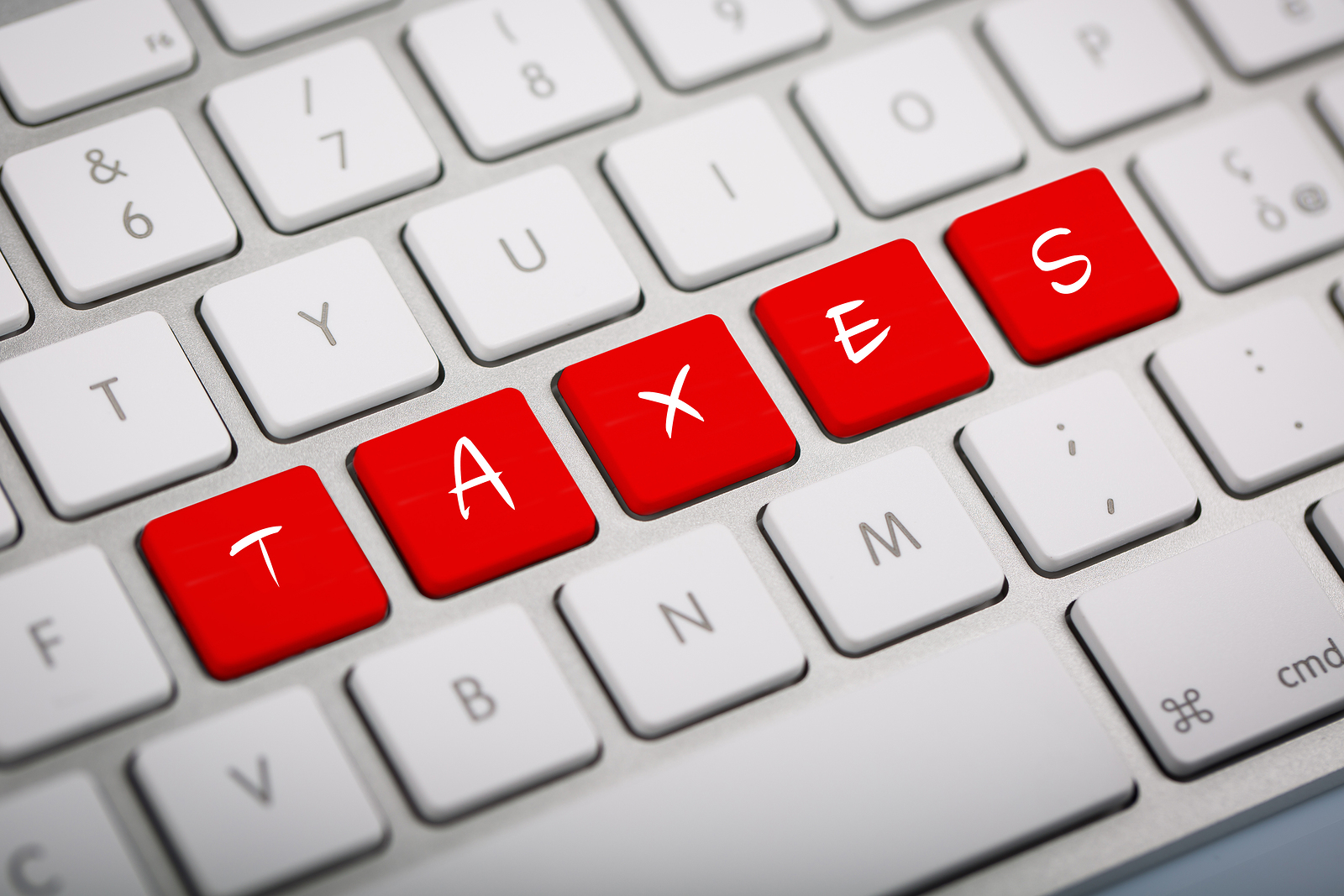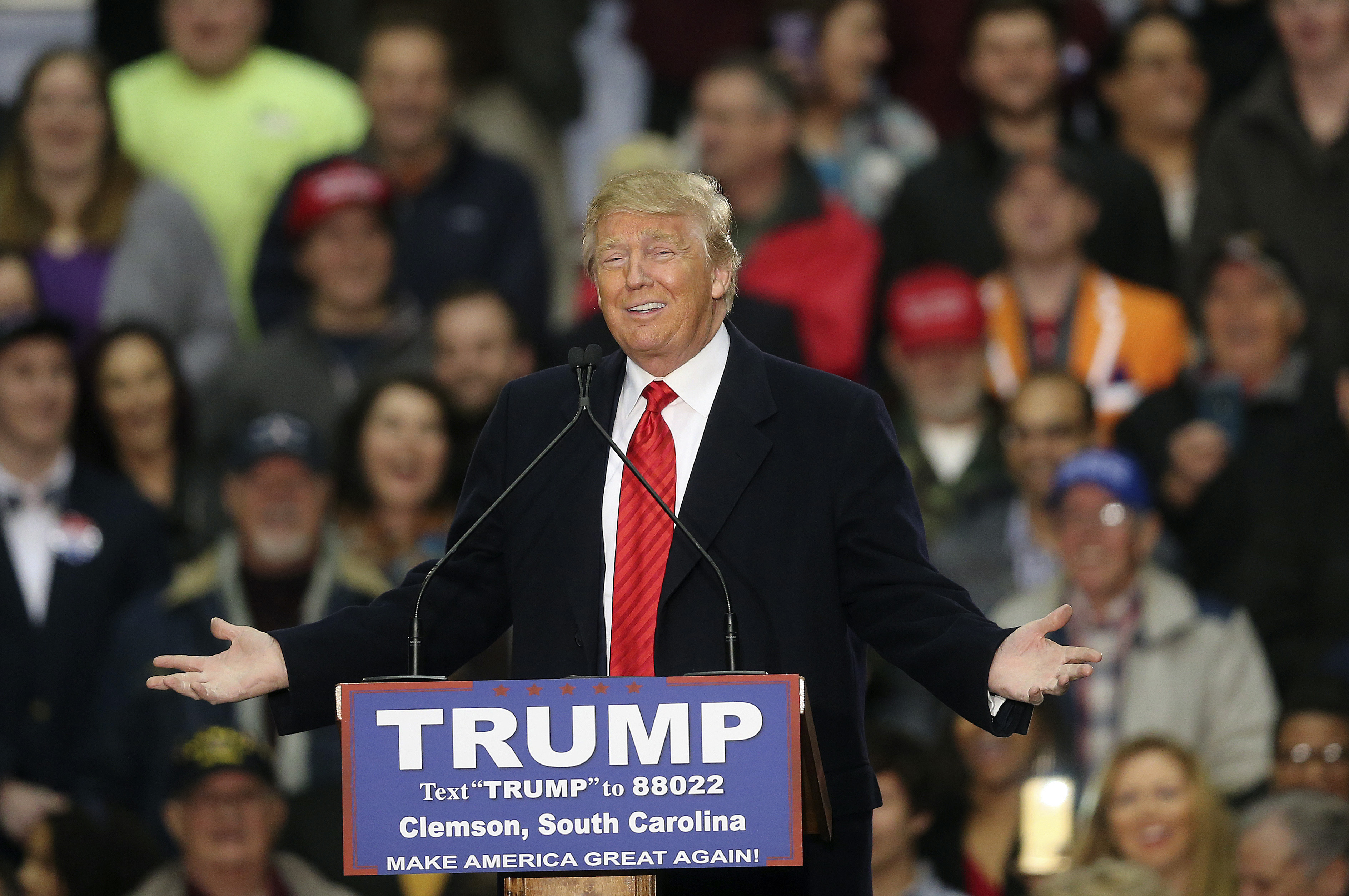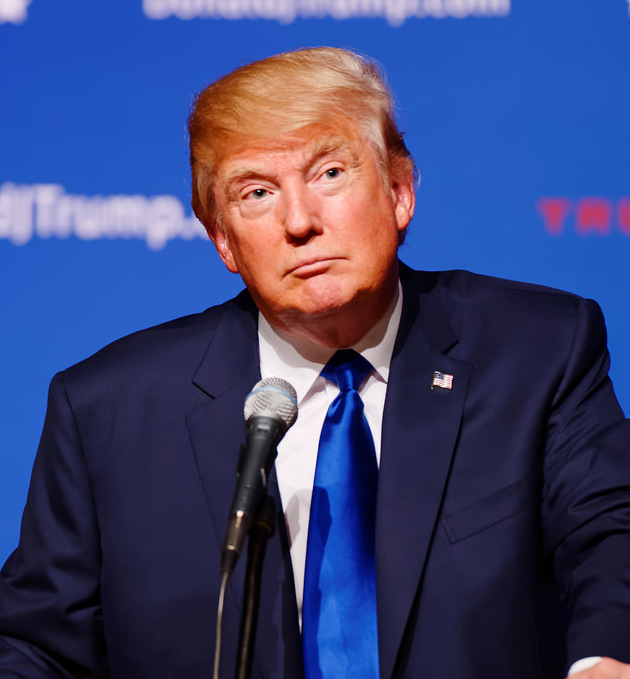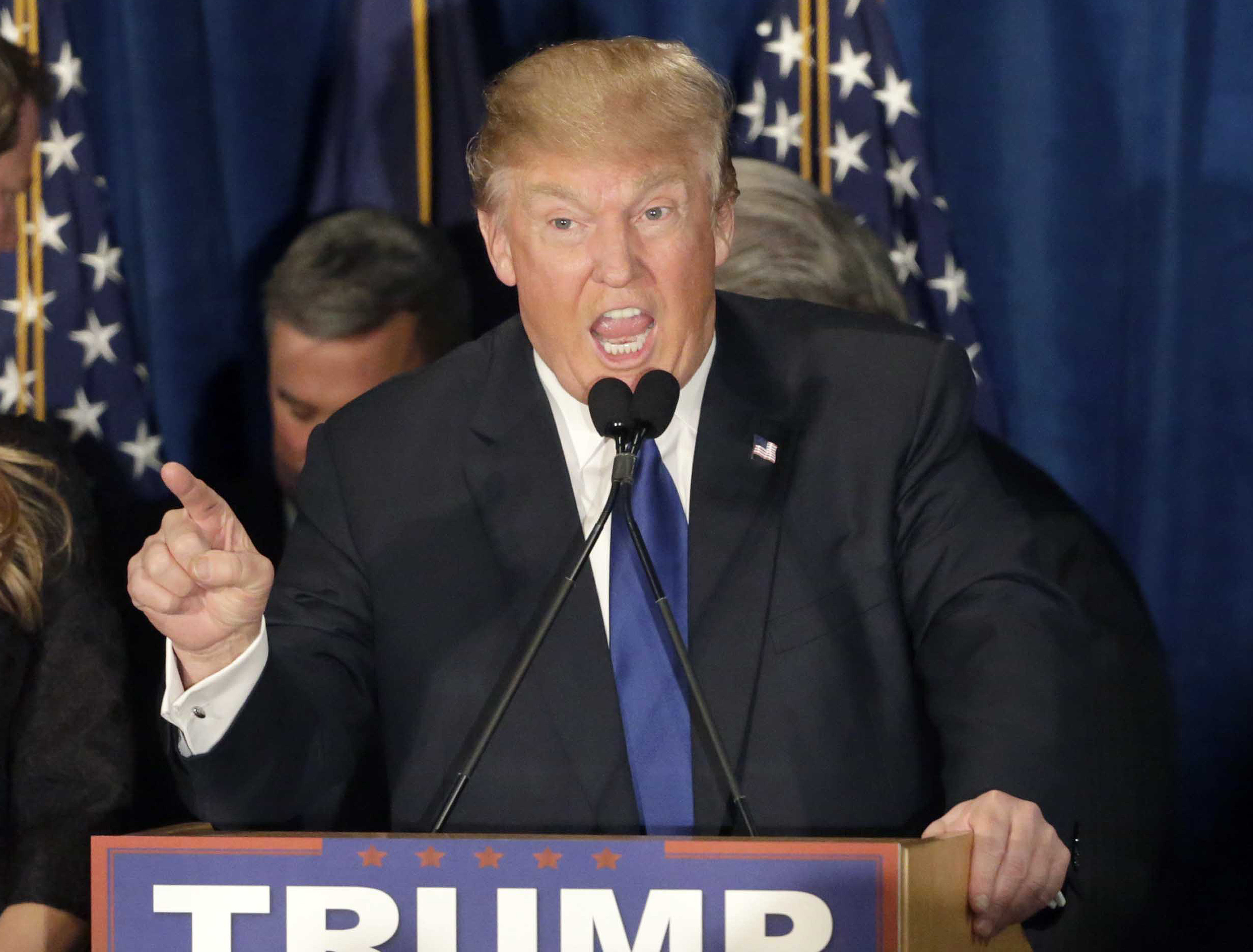
Republicans have looked towards policies like the border adjustment tax to protect domestic workers against unfair foreign competition. But what’s often overlooked in that conversation is how foreign slave labor gives some companies a huge and unethical advantage.
House Speaker Paul Ryan and Rep. Kevin Brady proposed the border adjustment tax to serve two main purposes. The policy aims to protect domestic companies from foreign competition by taxing imported goods. It is also supposed to raise tax revenue to make up for cuts to corporate and individual rates.
Slave labor poses one of the more egregious and unethical examples of unfair foreign competition. Domestic companies that act within the law are at a huge disadvantage to companies willing to produce goods with exploited workers. The question is whether the border adjustment tax could potentially combat that type of unfair competition when it comes from foreign producers.
“I think that needs to be an evidence-based question,” Terry FitzPatrick, communications director for the global slave watchdog Free the Slaves, told InsideSources. “So, if the answer is that this will have some impact on slavery overseas, well then, of course, it should be a consideration. Could this help create pressure on countries to weed out slavery in their exports? Could it make the problem worse in those countries? Maybe.”
The first issue is that the question ventures into unknown territory. There’s not much information available on how a border adjustment tax could potentially impact imports made with slave labor simply because the policy hasn’t been tried in the modern American economy. There just isn’t much observable data. It’s also not clear how it would fit into the existing legal framework, which already includes laws and regulations that combat slave labor.
“The reason I hesitate to answer is because we’re in completely unknown territory, and we may be in unknown territory also for legal reasons,” Nottingham University Prof. Kevin Bales told InsideSources. “You have to first answer the question, are you telling us we could import, we just need to pay a higher tariff. So you’d have to work that out and say no, that’s not what it’s about. What this is about is a punitive tax that’s going to be higher if we know countries are allowing the export of quantities of slave-made commodities and so worth.”
What is known is that slave labor continues to be a huge problem worldwide. The Department of Labor (DOL) found in a report last year that roughly 350 common products are made with forced and child labor. One reason is global supply chains are incredibly complex, making it easier to hide where slave labor occurs.
“The world is a place of integrated supply chains, and commodities come from one place that are sewn into components in another place, and they’re assembled into a finished product in another place and brought to America, or sometimes assembled in America,” FitzPatrick said. “We are interdependent in that regard.”
News reports recently drew attention to alleged abuses in Chinese prisons. A purse bought from a Walmart in Arizona supposedly had a letter in it written by a Chinese prisoner forced to produce American goods. The letter claims that prisoners are being beaten and forced to work 14 hour days.
“Rwanda, which has no coltan or cassiterite, is one of the larger exporters in Africa of coltan and cassiterite,” Bales, who teaches contemporary slavery, said. “How does that magically happen? It magically happens because there’s this constant smuggling of those minerals across the border from the Congo, where they do have it and there are mines with slave labor.”
The International Labour Organization (ILO) found almost 21 million people worldwide are victims of forced labor. Almost every victim is exploited by individuals or enterprises, with only two million forced into slave labor by a state or rebel group. Forced labor in the private economy generates $150 billion in illegal profits annually. Reports elsewhere have found the problem might be much worse.
“The use of forced labor is quite pervasive; lots of countries, lots of different types of products and so on,” Shawn MacDonald, president of the slave labor research nonprofit Verité, said. “Low labor standards are a problem because it is noncompetitive behavior, and if you look at forced labor and child labor, the worst ones are child labor, they are really the more egregious examples of it. So already poor labor standards do gives countries a noncompetitive advantage, an unfair advantage.”
President Donald Trump has pledged to protect domestic workers against unfair foreign competition. Verité provides lawmakers and world leaders resources so they can better understand and combat slave labor. A recent transition report to the president highlighted how slave labor undermines lawful domestic companies and workers.
“One of the principals that underlines the recommendations to the Trump administration is that forced labor undercuts American labor at home,” FitzPatrick said. “That means that ending slavery overseas isn’t just the right thing to do, it’s a smart thing to do because it can help, not entirely erase, but it can help with this price differential.”
The border adjustment tax in its current state would likely do little to address the problem. The current proposal raises rates on imports without considerations of whether any steps along the supply chain involved slave labor. The policy would have to include provisions that target countries that use exploited workers in that way.
“I just don’t see how the border adjustment tax deals with the problem,” MacDonald said. “I just don’t see the link to forced labor unless you really tailor it to say we are going to use the U.S. Department of Labor list or some criteria to say we will tax products that are known to be associated with forced labor.”
The DOL tracks imports made with slave labor. That list could be used to determine which countries should have the tax levied against them. Bales notes it would have to also include a substantial financial penalty for it to actually discourage countries that use slave labor.
“Could it be a blunt instrument to use on countries, well possibly, except that there doesn’t seem to be any of that type of stuff in this provision,” Bales, who also coauthors the Global Slavery Index, said. “We need to bankroll things like building walls, but we’re going to reduce corporate and personal tax revenue so we’re going to have to get it somewhere else, and they’re looking at tariffs.”
The border adjustment tax would also have to integrate itself into the legal framework that already exists. The Tariff Act of 1930 included a provision which prohibits the importation of goods produced by slaves and prison labor. There have since been many other laws, regulations, and court decisions banning slave imports.
“The other thing to keep in mind is that it’s already illegal to import into the United States items that are made by forced labor or child labor, and it has been that way for decades,” FitzPatrick said. “The problem has been lax enforcement, only a handful of incidences since the Tariff Act was introduced long ago, and there have been loopholes. Now one of the loopholes was closed last year.”
The Tariff Act did include what is known as the consumptive demand loophole. The loophole allowed for slave-made imports if there was not sufficient supply to meet domestic demand. The law, however, didn’t clearly define what the standard was. Former President Barack Obama closed the loophole when he signed a bipartisan bill last year.
“There is existing legislation and regulation around how federal contractors should behave in relation to forced labor and human trafficking,” MacDonald said. “I think there’s a lot more the government could be doing to deal with this problem if you think about it as a problem of forced labor generally, or you want to categorize it as a problem of unfair competition for American businesses.”
The federal laws already in place haven’t been perfect, but they have still been effective tools in combating the practice. A tax on slave made imports is unlikely to do much on its own, but it may be possible to design it to complement the laws already in place.
“It takes a whole of government approach to solving slavery and forced labor in manufacturing, and you can’t find a silver bullet for it,” FitzPatrick said. “Trying to end slave labor overseas by taxing it isn’t a holistic approach. More is needed. It may be one approach, but no single approach will end the problem.”
FitzPatrick adds lawmakers should look to prevent the problem, and not just combat it. Lawmakers, for instance, should try to reduce the supply of vulnerable workers by providing programs and pathways to seek out help. FitzPatrick notes laws and programs against slave labor should look at the problem in three ways.
“You have to look at modern slavery around the world from three directions,” FitzPatrick said. “One is by reducing the demand for products made by slaves, and the other is enforcement of the laws against slavery and access to justice and restitution for people who are victimized by this crime. The third way is to reduce the supply of vulnerable people.”
Any border adjustment tax tailored to prevent slave labor would have to consider the potential unintended consequences. MacDonald, for instance, notes the law would have to include mechanisms to ensure the exploited workers don’t get hurt even more.
“But if you just say we’re going to raise tariffs, I think in fact it could make the problem worse because then you’re putting more pressure on those producers overseas,” MacDonald said. “They’re suddenly making less money, and in general what happens is, when you squeeze the profits of businesses, they just try to get more labor and more work from the workers.”
MacDonald adds really any law meant to help people should consider the unintended consequences, and put mechanisms in place to prevent them.
Another consideration is who the policy is meant to target. The border adjustment tax in its current form is designed to protect domestic production by targeting foreign imports. A border tax aimed at combating slave labor wouldn’t necessarily want to levy the same penalties on foreign production that doesn’t use exploited workers.
“You don’t want to tax the good companies because there are a few bad actors in their industry or their sector,” FitzPatrick said. “Slavery is more of a scalpel approach to get at where the problem is worst, and what products and companies are the worst.”
MacDonald adds the president does have plenty of other options to prevent slave labor. The federal government could increase enforcement, and be more aggressive with investigating alleged incidences of slave labor. Federal investigations could potentially discourage slave made imports if they were aggressive enough.
“They could truly and genuinely resource the border protection people to really investigate, and begin to stop it,” MacDonald said. “It would be a tax in the sense that businesses that were tied to this would have an immediate impact on their bottom line in terms of their goods being seized and being held for an investigation.”
Supply chain transparency laws have been proposed as a promising way to address slave labor. The policy requires larger companies to track the supply chains they get products and components from. The companies are then required to deploy internal policies to ensure their suppliers and subcontractors are not using slave labor. The California Transparency in Supply Chains Act has been used as a model since being enacted in 2012.
“Any company that is registered in the state of California, as either a manufacturer or retailer, with the state taxation and revenue board, and does $100 million in gross receipts worldwide, not just in California, has to, on their website, disclose what they’re doing to investigate and rout out slavery in their supply chains,” FitzPatrick said. “That has become a model for a law that was introduced by Carolyn Maloney from New York into Congress.”
The California transparency law has also gained traction as a model internationally. The United Kingdom passed a version of the law that mirrored many of the same provisions in 2015. The European Union is currently considering whether to enact its own version of the policy, too.
“So we have slavery supply chain transparency law for all of the United Kingdom now,” Bales said. “And so all these corporations over a certain size have to explain what they’re doing in terms of digging into their own supply chains, how they’re policing it, and how they’re training their staff, and how they’re dealing with their subcontractors.”
Bales adds there has been a push domestically to make it a national law. He notes it’s still a slow process to fully implement since supply chains are so complex. Companies need time to setup necessary procedures to track their supply chains and comply with the law.
Follow Connor on Twitter
Subscribe for the Latest From InsideSources Every Morning











